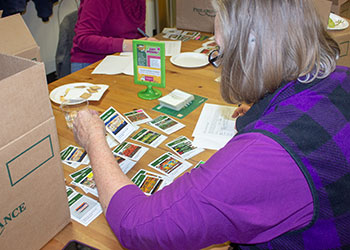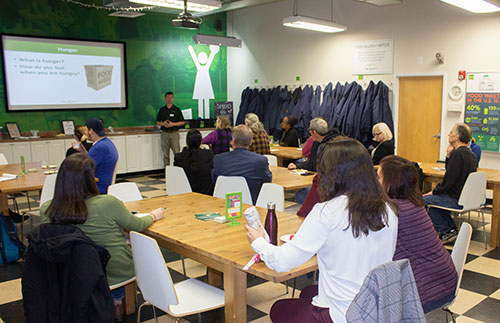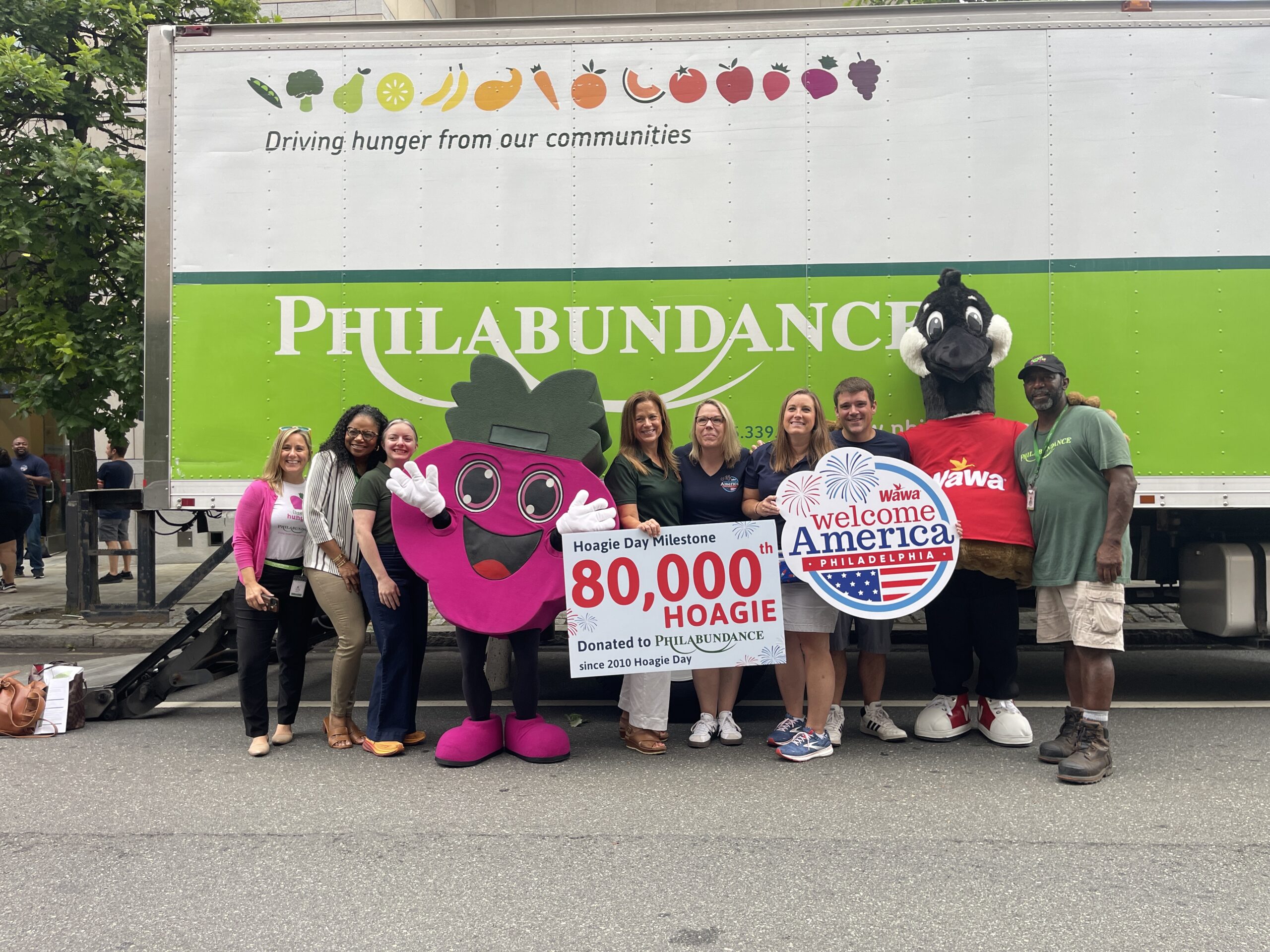 By Christopher Luebbe, Volunteer Coordinator
By Christopher Luebbe, Volunteer Coordinator
Back at the end of October Philabundance hosted its inaugural Hunger Simulation, an event designed to provide its participants with a perspective on some of the challenges faced by people who are food insecure through an interactive role-playing activity and facilitated discussion.
The event began with a brief presentation on what food insecurity is and its prevalence in the greater Philadelphia area. People are sometimes not aware of the scope of the problem and the fact that 1 in 5 people in our region are food insecure and also that the rate of food insecurity in Philadelphia has actually increased over the past several years (in opposition to the downward national trend).

Participants were given fictional profiles which included their available resources and expenses and tasked with procuring enough food to meet the caloric needs of their families for a week. As they made the rounds to the benefits office, grocery store, and food pantry, they contended with lines, bureaucracy, and the pressure of trying to stretch their limited resources to meet their nutritional needs. They also ‘discovered’ that there is no manual to being food insecure, no one tells you where the closest pantry is, what the hours of the benefits office are, etc. In the words of one participant:
[The most impactful part of the simulation was] seeing how stressful it was to plan the week’s meals given the limited resources. Most of us have so many choices that we haven’t had to go through that process. Also understanding how much time and effort goes into finding out where all the resources are.
Different challenges and insights arose for different participants, but one factor that came up repeatedly in both the discussion and the feedback surveys was the amount of time everything took and how valuable that time became.
How many of us have consciously to consider the opportunity cost of the time it takes to feed ourselves? One participant noticed that the hourly wage listed in his profile seemed low compared with his monthly income. It did not occur to him that he was working more than 40 hours per week to (barely) make ends meet. When work takes up that much of your time and every dollar counts, how much more valuable is time spent waiting in line to apply for benefits, on public transportation, clipping coupons and planning (and even preparing) meals.
What compromises and sacrifices would you be willing or forced to make in order to stay within your means and still provide for your family? What are the short and longer term impacts of living on an economic cliff’s edge with the stress of knowing that a sick child, an injury, or a car repair could send you and your entire family tumbling off and into a downward spiral.
Our hunger simulation raised many questions for the participants, the most pressing of which were: What can I as an individual do to help end hunger? And, How can we work together to ameliorate this situation which affects so many in our community? There are many answers to these questions, but a good place to begin is to give time, food, and/or money to support our mission.




